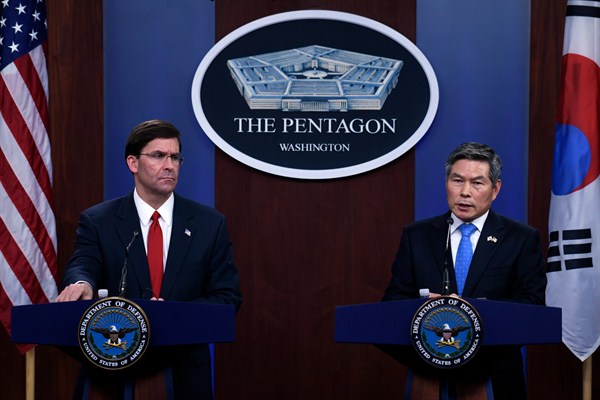In what has been called a “protection racket” and a “blatant shakedown,” President Donald Trump is again pressuring South Korea to increase its contribution to the costs of maintaining U.S. military bases in the country.
The mafia-esque terminology employed by commentators seems apt given Trump’s shocking initial demand for a fivefold increase in Seoul’s share of American basing costs, from around $900 million per year to nearly $5 billion. While U.S. negotiators have reportedly climbed down from that position, the two sides have yet to find common ground after six rounds of negotiations, heightening fears of a lasting standoff that could negatively affect American troop readiness and undermine relations with a key U.S. ally.
The most recent military cost-sharing deal, formally known as the Special Measures Agreement, expired at the end of December. This is not uncommon, as efforts to extend the previous two deals also stretched past their deadlines. In 2018, Trump made a similarly outlandish—though not quite as extreme—demand for a 50 to 100 percent increase in South Korea’s annual contribution to U.S. basing costs. Ultimately, negotiators compromised at an 8 percent hike, which South Korea viewed as a substantial concession.

